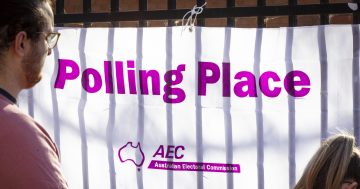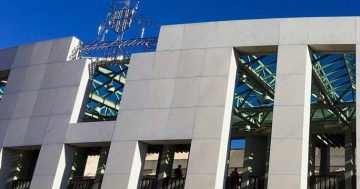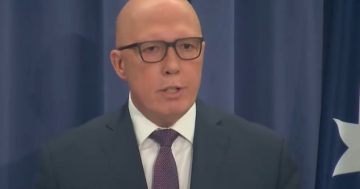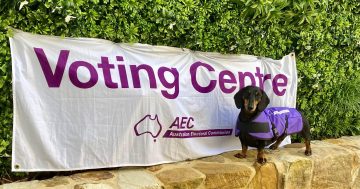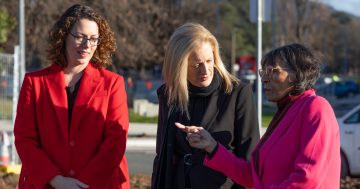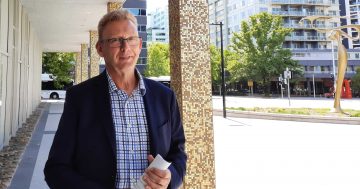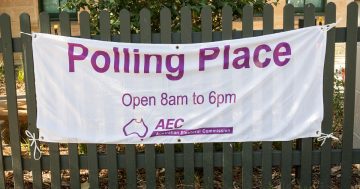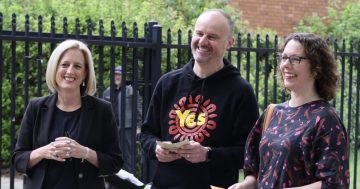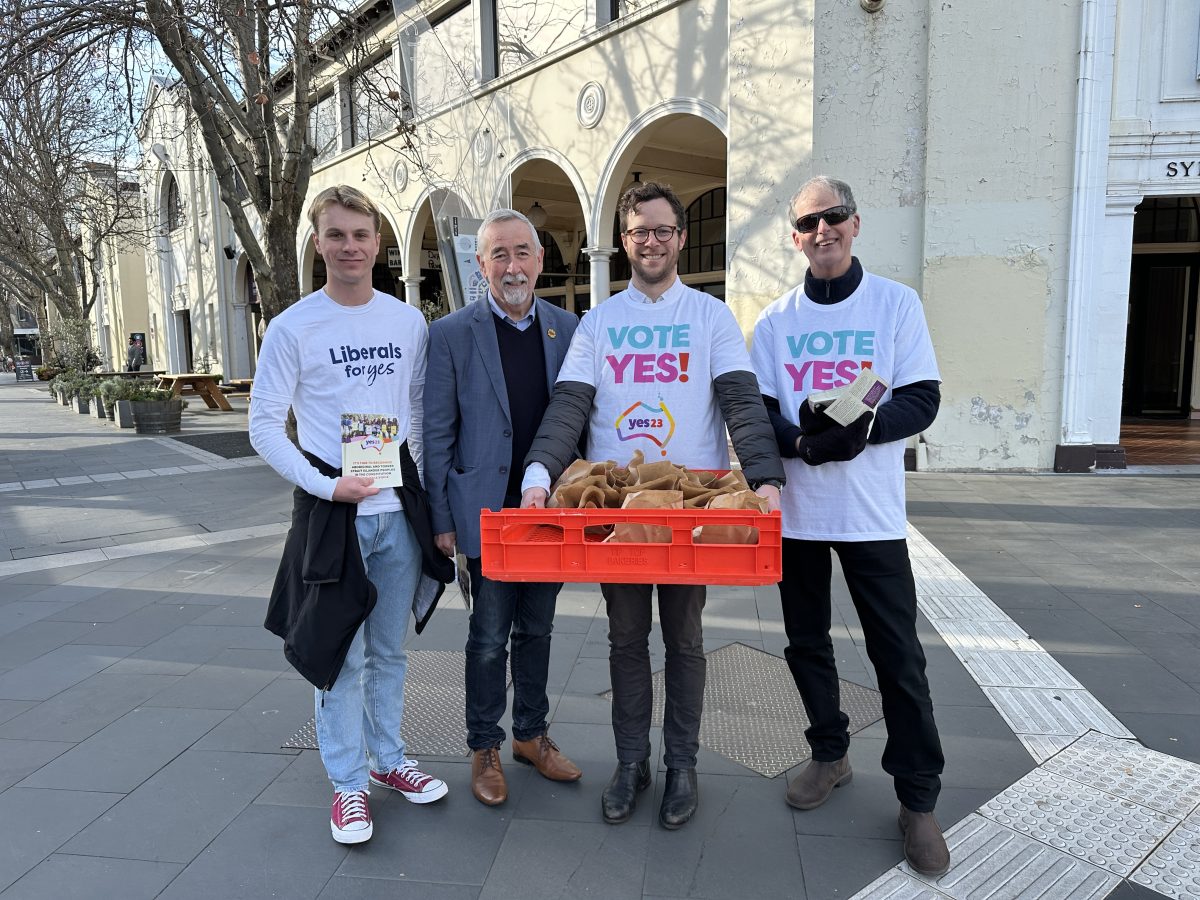
Former Canberra Liberals ACT senator and chief minister Gary Humphries (second from left) showing his support for Yes this morning. Photo: Travis Radford.
Prime Minister Anthony Albanese has announced that Australians will vote on whether to enshrine the Voice to Parliament as an independent advisory body in the Constitution on Saturday, 14 October.
The announcement was made today with Indigenous Australians Minister Linda Burney and South Australian Premier Peter Malinauskas in front of a crowd in the northern Adelaide suburb of Elizabeth. The venue was reportedly chosen in an effort to reinvigorate flagging support for the Yes vote among working-class voters in the outer suburbs of major cities.

ACT local and federal political members of all persuasions were out in force in the city this morning to support the Yes vote. Photo: Travis Radford
The Prime Minister said that on 14 October, “Every Australian will have a once-in-a-generation chance to bring our country together and to change it for the better”.
“To vote for recognition, listening and better results, and I ask all Australians to vote Yes!
“On October 14th, you are not being asked to vote for a political party or for a person, you’re being asked to vote for an idea,” he added.
“To say yes to an idea whose time has come.
“To say yes to an invitation that comes directly from Aboriginal and Torres Strait people themselves. A proposal that thousands of elders and leaders and communities all over our country have worked on for well over a decade. A change supported by more than 80 per cent of Indigenous Australians.
“A way for all of us to recognise Indigenous Australians and their history in our constitution and a form of recognition that will make a positive difference to their lives and their futures.”
The referendum question will ask one question: A Proposed Law to alter the Constitution to recognise the First Peoples of Australia by establishing an Aboriginal and Torres Strait Islander Voice. Do you approve this proposed alteration?
If passed, the constitution will be amended to include the ‘Recognition of Aboriginal and Torres Strait Islander Peoples’. Voting for all eligible Australians is compulsory.
The last referendum conducted in Australia was the unsuccessful 1999 effort for Australia to become a republic and for the insertion of a preamble to the Constitution.
The last successful referendum was in 1977 when voters approved an amendment to the Constitution to allow electors in Australian territories to vote at referendums, to alter the Australian Constitution concerning the filling of casual vacancies in the Senate, and to introduce a retirement age of 70 for federal judges. Of the 44 referendums held since Federation, only eight have successfully passed.
In Canberra City this morning, politicians of all persuasions came together to campaign for Yes.
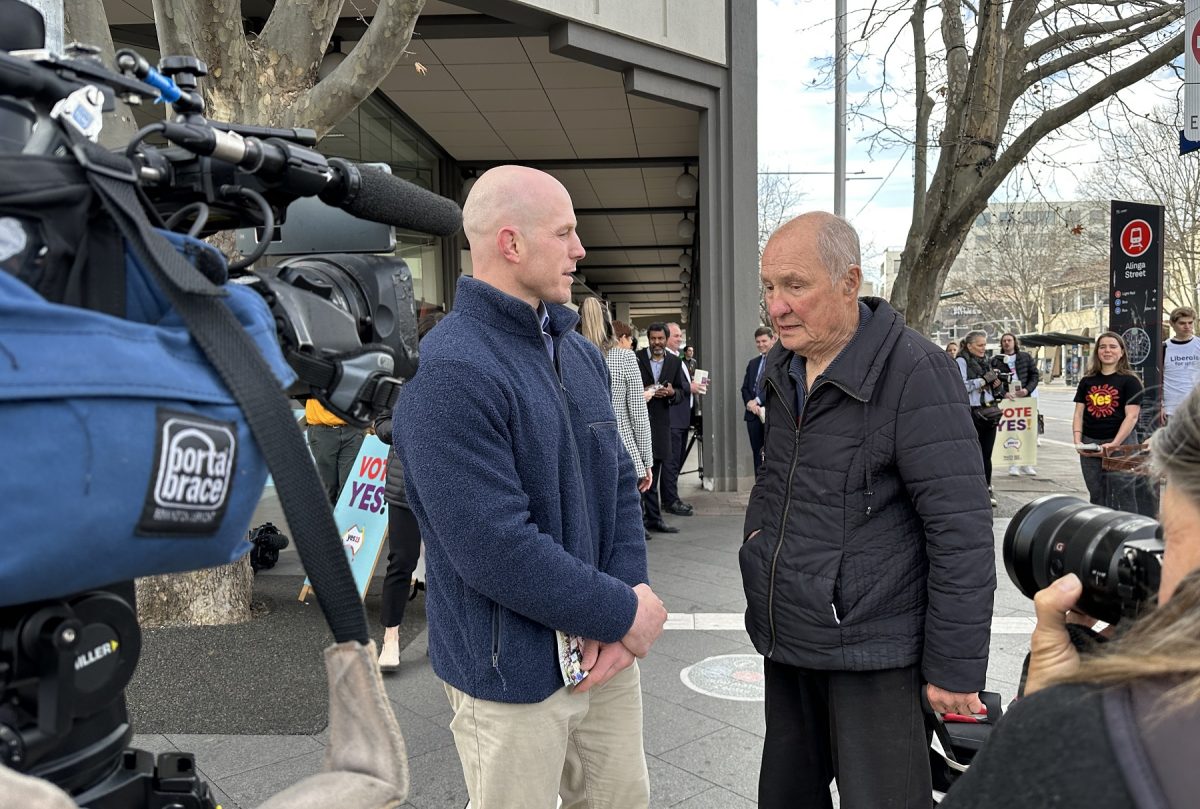
ACT Independent Senator David Pocock engages with commuters in Alinga Street this morning. Photo: Travis Radford.
ACT Senator Katy Gallagher said, “I guess the unofficial campaign has been going for some time, but today really marks the start of the official campaign. I think it’s where you’ll see a lot of people who haven’t engaged on the issue start looking and learning and reaching out for information.
“All of us here, right across the political spectrum, individual community members that have never been involved in political campaigning, they are getting behind this campaign because we want to be part of shaping our country’s future. We want to be part of driving better outcomes for First Nations people, and we genuinely see this as a real opportunity to make a difference.”
Standing with Senator Gallagher, Liberals for Yes campaigner Clare Carnell added, “We know that good policy is always about consulting with the people who will be directly affected by it.
“Indigenous policy in this country has, let’s be fair, not worked on a lot of things for a long time. We’re excited about getting stuck into the Yes campaign and the Voice getting up and making a real difference for First Nations people in this country.”
ACT Independent Senator David Pocock said it was great to be there with his cross-bench colleagues to talk about the referendum.
“This will be a defining moment in Australia’s history,” he said.
“Over 80 per cent of Aboriginal Torres Strait Islander people are supportive of the Voice. This was on the back of one of the most consultative processes in Australian history,” he added.
“The Uluru Statement from the Heart is a generous offer to all of us, not just to politicians but to all Australians, to change the way we do things when it comes to Aboriginal and Torres Strait Islander affairs.”












